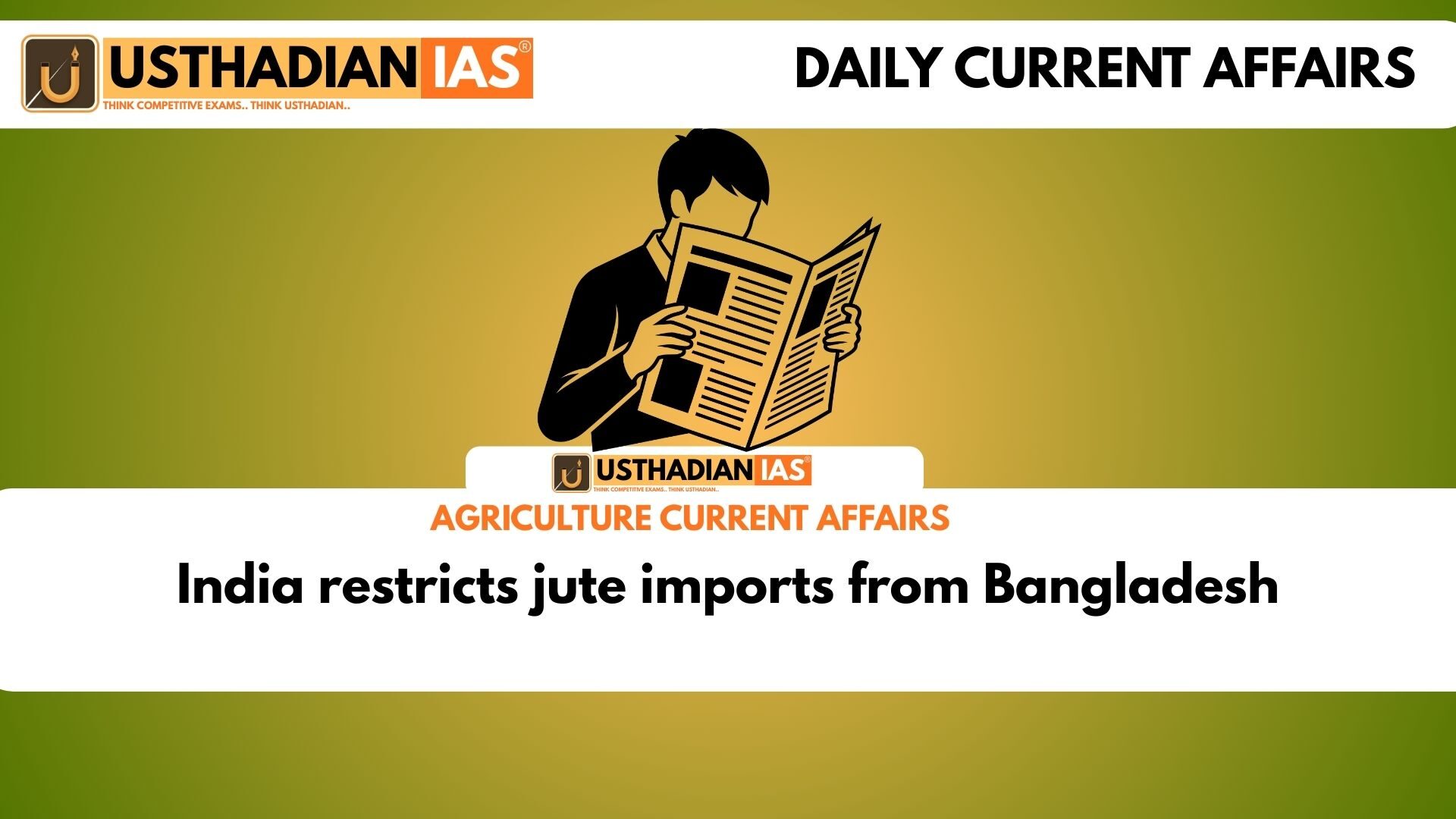Trade route blocked for jute imports
India restricts jute imports from Bangladesh: India has imposed immediate restrictions on the entry of jute and related items from Bangladesh. This measure was introduced on June 27, 2025, through a directive issued by the Directorate General of Foreign Trade (DGFT). All land borders and most sea ports have been closed for these shipments, except for the Nhava Sheva port in Mumbai, which remains operational.
Reason behind the restriction
Authorities stated that Bangladesh continues to offer financial support to its jute exporters, resulting in unfair pricing in the Indian market. These artificially low-priced imports are harming domestic production and impacting employment in the jute sector.
Support for the Indian workforce
This action is aimed at securing the interests of the Indian jute workforce, which includes around 4 lakh individuals. A significant portion of them are engaged in rural industries across eastern India.
Static GK fact: West Bengal is India’s leading state in jute cultivation, contributing over three-fourths of national output.
List of impacted commodities
The order applies to various jute-based products, such as:
- Flax tow and yarn waste
- Raw and processed bast fibres
- Single yarn made of jute
- Woven or unbleached jute fabrics
Entry through all border points and ports, other than Nhava Sheva, has been prohibited.
Regions expected to benefit
The restriction could help farmers and workers in states like West Bengal, Bihar, Assam, Odisha, Andhra Pradesh, Tripura, and Meghalaya. These states have strong ties to jute cultivation and processing industries.
Static GK fact: India ranks first globally in raw jute production, while Bangladesh is the leading exporter of jute-based products.
A continuation of earlier trade controls
This development follows a similar move made on May 17, 2025, when India banned garment imports from Bangladesh through land entry points. These sequential actions are part of a broader effort to ensure balanced trade conditions for Indian producers.
Ongoing challenges despite existing duties
Although anti-dumping measures have been in place for several years, Indian markets still face a surge in low-cost jute goods. This has led to:
- Idle capacity in Indian mills
- Reduced earnings for domestic producers
- Job losses in rural manufacturing sectors
Government’s official stance
According to a government official, India’s market openness is being misused, and such practices are affecting local livelihoods. The country has taken a firm stance to defend its economic and labour interests.
Static GK Tip: The Directorate General of Foreign Trade (DGFT) operates under the Ministry of Commerce, playing a central role in managing India’s import and export regulations.
Static Usthadian Current Affairs Table
India restricts jute imports from Bangladesh:
| Topic | Detail |
| Effective Date | June 27, 2025 |
| Authority | Directorate General of Foreign Trade (DGFT) |
| Permitted Port | Nhava Sheva, Mumbai |
| Banned Ports | All land and other sea ports |
| Restricted Items | Flax tow, jute fibres, yarns, fabrics |
| Beneficiary States | WB, Bihar, Assam, Odisha, Tripura, AP, Meghalaya |
| Violation by Bangladesh | Export subsidies and dumping |
| Sector Impacted | Indian jute farmers and mills |
| Previous Related Action | Apparel import ban via land ports (May 17, 2025) |
| India’s Position | Largest raw jute producer globally |








